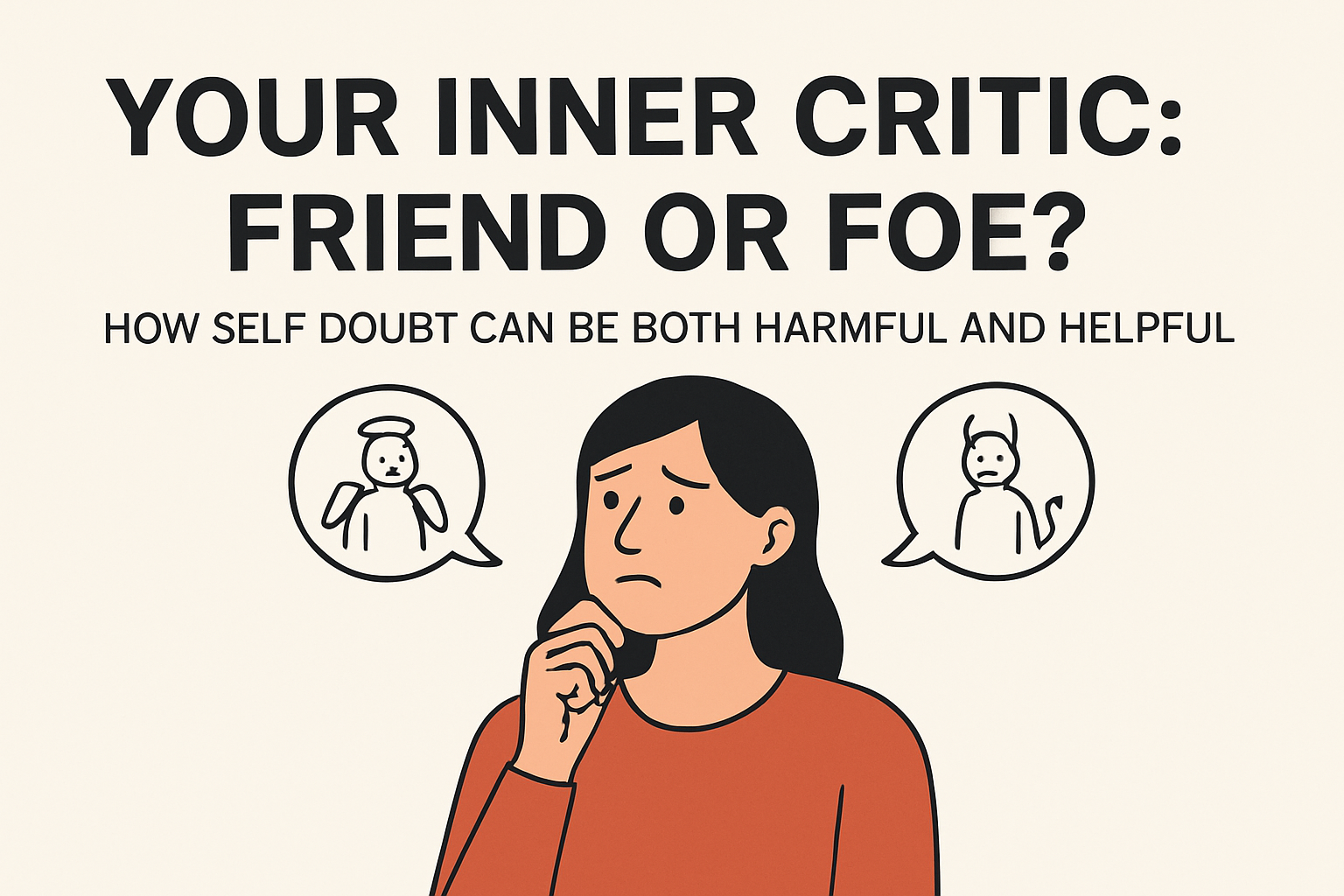Your Inner Critic: Friend or Foe? How Self Doubt Can Be Both Harmful and Helpful
Most of us know that voice inside our heads. The one that says, “You are not good enough,” or “You are going to mess this up.” It shows up before a big presentation, after a tough conversation, or even when things are going well. That voice can be exhausting, and yet, it exists for a reason.
Self doubt is often seen as the enemy of confidence and success, but it is not always that simple. Sometimes, your inner critic can help you grow. The key is learning when to listen and when to let go.
What Is the Inner Critic
Your inner critic is that internal voice that judges, questions, and second guesses you. It often develops early in life as a way to keep you safe. By pointing out potential mistakes or risks, it tries to prevent you from feeling embarrassment, failure, or rejection.
In moderation, this voice can serve a useful purpose. It helps you reflect, prepare, and stay grounded. But when it becomes too loud or harsh, it can fuel anxiety, perfectionism, and low self esteem.
When Self Doubt Becomes Harmful
The inner critic can turn toxic when it stops being protective and starts being punitive. You might notice:
- You hesitate to take chances or pursue new opportunities.
- You constantly compare yourself to others.
- You replay mistakes long after they have passed.
- You feel like nothing you do is ever enough.
When this happens, self doubt does not make you stronger. It keeps you small. It limits your ability to grow, connect, and trust yourself.
When Self Doubt Can Help
Believe it or not, self doubt can sometimes be your ally. That small sense of uncertainty can motivate you to prepare more thoroughly, ask for feedback, or stay open to learning. It can keep you humble and prevent overconfidence from leading to careless mistakes.
The goal is not to silence your inner critic completely. It is to learn how to interpret its message. Instead of reacting with fear or shame, you can pause and ask, “Is this voice protecting me, or holding me back”
How to Work with Your Inner Critic
1. Notice the voice: Pay attention to when self doubt shows up and what it says. Awareness is the first step toward separating your identity from your inner critic.
2. Name it: Give your inner critic a name or personality. This simple act helps you see it as just one voice in your mind, not the ultimate truth.
3. Check the facts - Ask yourself, “Is this thought based on evidence, or on fear” Write down what is true and what is an assumption.
4. Respond with kindness: If you would not say it to a friend, do not say it to yourself. Replace criticism with compassion. Try saying, “I am learning,” or “It is okay to make mistakes.”
5. Balance confidence and humility: Let your inner critic keep you honest, but do not let it steal your courage. Confidence does not mean ignoring your flaws. It means believing you can grow through them.
Learning to Live with Your Inner Critic
Your inner critic may never go away completely, and that is okay. The goal is not silence. It is balance. When you learn to hear your self doubt without letting it run the show, it can become a quiet guide rather than a constant attacker.




